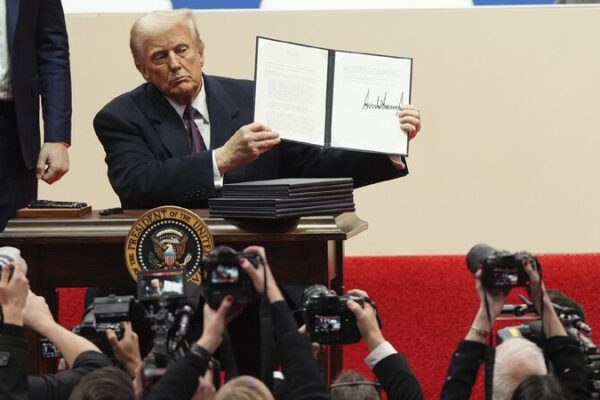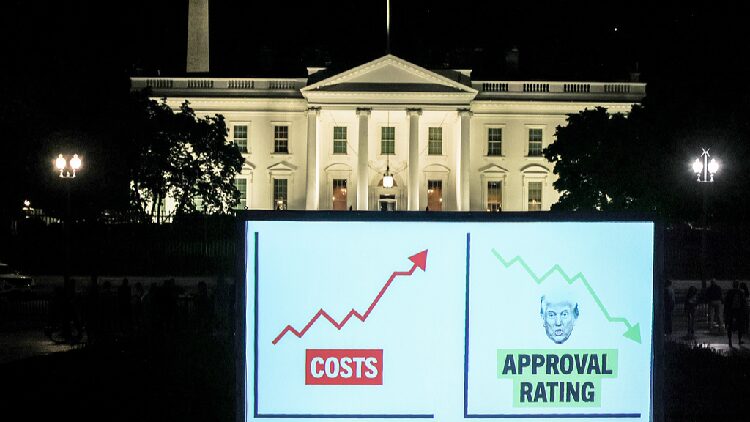The recent implementation of harsh tariffs by U.S. President Donald Trump has ignited widespread criticism both within the United States and across Europe. As economic fears mount, various polls indicate that public sentiment is turning against the administration’s trade policies.
In the United States, a Wall Street Journal survey revealed that 54% of respondents oppose the new tariffs, expressing skepticism about their effectiveness in reviving American manufacturing. Additionally, 52% believe that the economy is worsening rather than improving. Disapproval of Trump’s handling of inflation surpassed approval by 15 percentage points, highlighting growing concerns over rising costs.
Another poll conducted by Reuters/Ipsos found that a majority of Americans are worried about increasing prices. An overwhelming 73% expect the cost of everyday items to rise, while 77% anticipate higher prices for personal electronics. Furthermore, 62% foresee a surge in home repair expenses over the next six months.
The tariffs, described by Trump as “reciprocal,” impose a 10% baseline levy on all imports, with rates reaching up to 49% for certain economies, including China and Vietnam. These measures, which took effect on Wednesday, have unsettled global financial markets and provoked countermeasures from the European Union, Canada, and other nations.
Across Western Europe, public support for retaliatory actions against the U.S. is strong, even if such moves could harm domestic economies. A YouGov poll conducted in Denmark, France, Germany, Italy, Spain, Sweden, and the United Kingdom found that large majorities—ranging from 79% in Denmark to 56% in Italy—favor a tit-for-tat response to the U.S. tariffs.
Despite anticipating negative impacts on their national economies, Europeans are resolute in supporting their governments’ countermeasures. In Germany, 75% of those surveyed believe that retaliatory actions will have a significant negative effect, a sentiment echoed by 71% in Spain and 70% in both France and Italy.
In Brazil, perceptions of the United States and President Trump have also deteriorated. According to a recent poll by Brazilian research firm Quaest, 43% of respondents hold unfavorable views of Trump, while only 22% view him positively. Negative opinions toward the U.S. have surged to 41%, up from 24% in March 2024, with favorable views dropping from 58% to 44% in the same period.
As trade tensions escalate, concerns over the global economy continue to rise. The widespread backlash against the tariffs underscores the complexities of international trade relations and the challenges facing policymakers in balancing domestic interests with global cooperation.
Reference(s):
Trump's tariffs draw fire at home and abroad amid economic fears
cgtn.com








